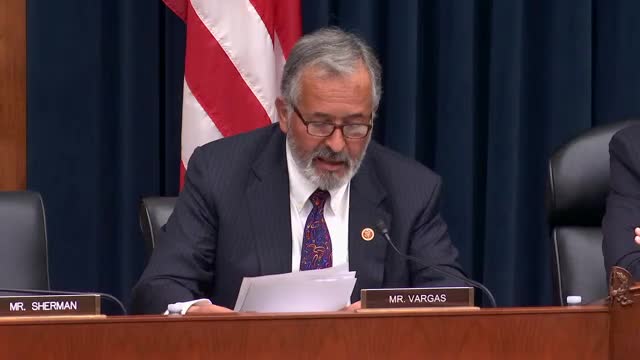Lawmakers and Economists Warn Tariffs Could Raise Prices, Weaken Treasury Demand
Get AI-powered insights, summaries, and transcripts
Subscribe
Summary
Members and witnesses at the task force hearing said large, unexpected tariffs would raise inflation and slow growth, creating difficult tradeoffs for the Fed and potentially affecting demand for Treasuries and dollar reserve status.
Ranking Member Vargas and other members raised concerns that the Trump administration's tariff actions could reduce investor confidence, increase inflation and complicate Treasury market functioning. Vargas framed tariffs as a major economic threat and asked witnesses how the tariff shock affects markets and households.
Dr. Kristin Forbes said the immediate effect of large tariffs is higher prices and slower demand, which risks a stagflation scenario. "When people realize they can't buy as much because things are more expensive, they're gonna be buying less," Forbes said, adding that tariffs are a supply shock that monetary policy cannot fully offset without harming growth.
Former Undersecretary Neli Lang told the committee the tariffs are a "massive tax increase" and warned they could reduce the demand for U.S. dollars and Treasuries over time. "This could, over time, reduce the demand for U.S. Dollars and treasuries," Lang said, citing potential foreign investor concerns about inflation, dollar depreciation or restrictions on holdings.
Witnesses and lawmakers also raised concerns about political pressure on the Federal Reserve. Forbes and Lang said central bank independence is critical: if independence is undermined, inflation expectations and the difficulty of bringing inflation under control rise.
Ending: Committee members pressed witnesses on immediate household impacts and longer‑term risks to Treasury demand and the dollar; witnesses urged policy coordination and reiterated that tariff‑driven supply shocks pose difficult choices for monetary policy.
